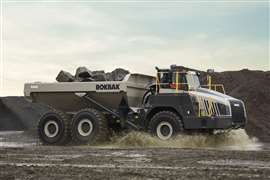LEEA warns about thorough examination
16 March 2015

The Lifting Equipment Engineers Association (LEEA) has released a statement for UK employers regarding their obligation to undertake periodic thorough examination of all lifting equipment.
As determined by Lifting Operations and Lifting Equipment Regulations (LOLER), companies are required to conduct thorough and frequent examinations of their lifting equipment.
Geoff Holden, LEEA, chief executive, said, “All UK employers are subject to LOLER, which clearly states that, once in service, lifting equipment for lifting persons or accessories for lifting must be thoroughly examined by a competent person every six months. Lifting accessories include commonly used items such as shackles, steels, hooks and round slings. Only for lifting equipment that does not fall into one of these two categories is the period extended to every 12 months.”
The advice comes after LEEA was made aware that some users of lifting equipment are being incorrectly advised that money can be saved by extending all the intervals between thorough examinations to 12 months, the statement said. Thorough examinations are usually conducted by external companies and LEEA is keen to stress that responsibility for compliance with LOLER lies with the owner of the equipment, not suppliers of examination and inspection services.
Geoff Holden added, “In the event of a prosecution, the fact that incorrect guidance had been given by an inspection company would not provide a means of defence for the employer.”
“If an employer wants to implement an examination scheme it must be formally drawn up by a competent person,” emphasised Holden. “Any extension to intervals must be based on a rigorous risk assessment.”
LEEA is using its website, social media, newsletters and roadshow and exhibition programme to raise awareness of the risks of failure to comply correctly with LOLER regarding thorough examinations. Geoff Holden said, “This is not just about staying on the right side of the law. The requirements reflect the fact that items such as shackles, hooks and slings typically play a safety-critical role and are subject to wear-and-tear and deterioration both in use and in storage. Any short term financial savings realised by not having them checked properly every six months pale into insignificance compared with the possible consequences of failure in service.”




